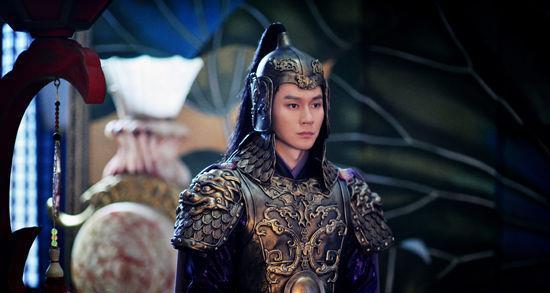Yesterday we talked about Li Mu's extremely famous Battle of the Zhao Dynasty and the Xiongnu, which is a typical example of a large infantry regiment in the history of Chinese warfare, in which a large infantry corps annihilated a large cavalry corps, but what we want to talk about today is the Battle of Fei, which is an example of a siege and annihilation war.
The Battle of Fei was fought in the fourteenth year of the reign of the Qin Dynasty (233 BC), in the war against the Six Kingdoms of Qin, in which the famous general Li Mu led the Zhao army to defeat the Qin army in Fei (in present-day Gaocheng District, Shijiazhuang, Hebei), that is, the siege and annihilation battle.

Thirteen years after the reign of the Qin Dynasty, the Qin army defeated the Zhao army at Pingyang. At the beginning of the fourteenth year of the Reign of the Qin Dynasty, the Qin general Huan Yi (桓齮) led his army eastward out of Shangdang, crossed the Taihang Mountains deep into the rear of the Zhao state, broke the Zhao army, beheaded 100,000 people, killed the Zhao general Huan Yuan, and captured Chili and Yi'an (southwest of present-day Yaocheng, Hebei). The Qin army advanced into Handan, and King Qian of Zhao urgently ordered Li Mu, a famous northern border general, to lead his troops south and command all the Zhao troops to resist the Qin army. After Li Mu led the main force of the border defense army to rendezvous with the Zhao army sent from Handan, he confronted the Qin army near Yi'an. He believed that the Qin army had won consecutive victories and had a very high morale, and if it was rushed to meet the battle, it would be difficult to win. Therefore, he adopted the policy of building fortifications and holding firm, avoiding a decisive battle, and refusing to go to war when the enemy was tired and waiting for an opportunity to counterattack.
In the face of the Zhao army's fortifications, Huan Yi believed that the Qin army was far away and unfavorable and lasting. He led the main force to attack Feixia in an attempt to lure the Zhao army to help, and when the Zhao army broke away from the camp, he annihilated it in motion. Gain insight into the enemy's situation and be unmoved. When Zhao Liang suggested to rescue Fei Xia, he said, "'The enemy attacks and I save it, it is for people'" and "soldiers are afraid of it". After the main force of the Qin army went to Fei, the remaining strength of the battalion was weak; And because the Zhao army had taken a defensive position for many days and refused not to fight, the Qin army was accustomed to it and neglected to be on guard. Li Mu then took the opportunity to attack and occupy the Qin army camp in one fell swoop, capturing all the Remaining Qin troops and Yuanzhong. Judging that Huan Yi would return to the rescue, Li Mu deployed a force to block the enemy from the front and deploy the main force on both flanks. When the frontal Zhao army made contact with the withdrawing Qin army, it immediately commanded the two wings of the Zhao army to carry out a pincer attack. After fierce fighting, the Qin army was defeated. Huan Yi only led a small number of his own soldiers to rush out of the siege and fled to the Yan kingdom in fear of his crime.
In the Battle of Fei, the Qin army came with the threat of great victory, and Li Mu could be said to have been appointed to the defeated army and was ordered to be in danger. In the face of the Qin army, which claimed to be invincible in the field world, Li Mu strategically adopted the strategy of avoiding its elite and attacking its laziness. When the enemy army recognized its intentions and tried to encircle the points to help and lure, Li Mu made a plan, used wei to save Zhao, and attacked him with a strategy of drawing salaries from the bottom of the cauldron. During the engagement, they also adopted the tactics of frontal obstruction of the enemy and two wings of encirclement, and completely annihilated the Qin army. Throughout the course of the war, Li Mu firmly grasped the initiative on the battlefield, made full use of his strengths and avoided his weaknesses, and finally won a complete victory. This is a typical battle to encircle Wei and save Zhao. With this battle, Li Mu was awarded the title of Wu Anjun.